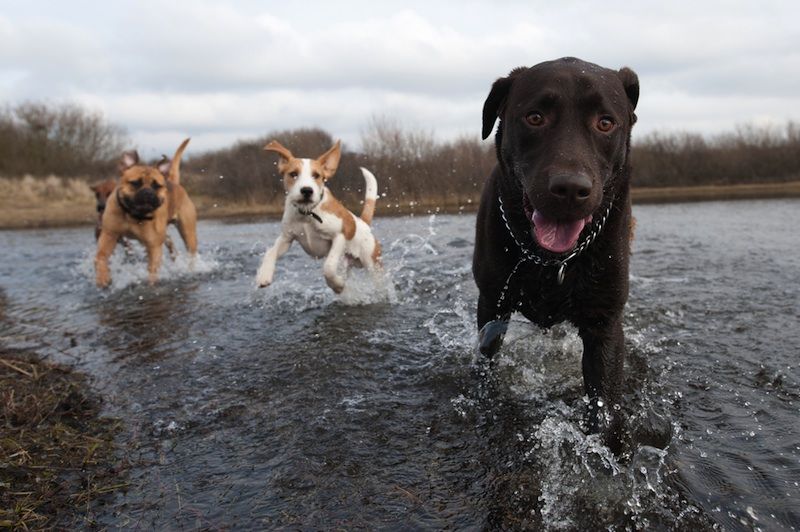What Your Dog's Breed Says About You

Paris Hilton's Chihuahua Tinkerbell may be more than just a purse accessory. According to new research, the breed of dog you choose can reflect your personality.
Owners of toy dogs, like Hilton and — believe it or not — Sir Isaac Newton, score high on a personality trait called openness, a measure of how intellectually curious, open to new experiences and appreciative of arts and culture a person is. Meanwhile, owners of famously friendly dogs such as the Labrador retriever are likely to be the most agreeable personalities around.
"We go for dogs that are a bit like us, just as we go for a romantic partner who is a bit like us," study researcher Lance Workman, a psychologist at Bath Spa University in the United Kingdom, told LiveScience.
Workman and his colleagues are interested in how personality traits influence real-world behavior. They focused on dog ownership because earlier studies have found personality differences between dog owners and non-dog owners (dog owners tend to be more agreeable). In one study, Workman and his co-authors found that people are even able to match purebred dogs with their owners, suggesting that certain breeds are associated with certain types of people.
In collaboration with the Kennel Club, the researchers set up an online questionnaire for 1,000 owners of purebred dogs. The questionnaire measured what psychologists call the "Big Five" personality traits: openness, conscientiousness, extroversion, agreeableness and neuroticism, a measure of anxiety.
To simplify matters, they split the dog breeds into seven Kennel Club categories: gun dogs, such as the Lab or golden retriever; hound dogs, such as the greyhound; pastoral breeds, including German shepherds and collies; terriers, such as the Staffordshire bull terrier; toy breeds, including Chihuahuas; utility breeds, such as bulldogs; and working breeds, such as the Doberman.
The results revealed correlations between the type of dog and the owner's personality. People who own pastoral or utility breeds are the most extroverted of any dog owners. Owners of gun dogs and toy dogs were most agreeable. The most emotionally stable people tended to own hounds, including beagles and Afghans. Toy dog owners were also the most open and imaginative bunch.
Sign up for the Live Science daily newsletter now
Get the world’s most fascinating discoveries delivered straight to your inbox.
"It breaks down the stereotype that owners of toy dogs are airheads, basically," Workman said. [Like Dog, Like Owner: See What Your Dog Says About You]
The study, which has not yet been peer reviewed, is being presented this week at the British Psychological Society Annual Conference in London. The findings suggest that dog owners naturally gravitate toward hounds that fit their personality and lifestyle.
But the information might also come in handy for people just starting to pick out a furry pal, Workman said. The questionnaire could be developed to include not only personality concerns, but also practical ones such as living space. Prospective dog-owners would then have a data-based way to choose a breed — a method that could lead to fewer dogs sent to the pound, Workman said.
"You would type in these answers, and it would expand the 50 questions we've got to go into lifestyle, and it would say, 'This is the dog for you,'" he said.
You can follow LiveScience senior writer Stephanie Pappas on Twitter @sipappas. Follow LiveScience for the latest in science news and discoveries on Twitter @livescience and on Facebook.

Stephanie Pappas is a contributing writer for Live Science, covering topics ranging from geoscience to archaeology to the human brain and behavior. She was previously a senior writer for Live Science but is now a freelancer based in Denver, Colorado, and regularly contributes to Scientific American and The Monitor, the monthly magazine of the American Psychological Association. Stephanie received a bachelor's degree in psychology from the University of South Carolina and a graduate certificate in science communication from the University of California, Santa Cruz.